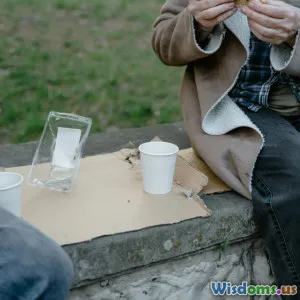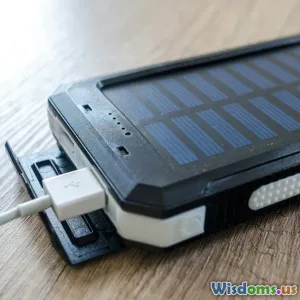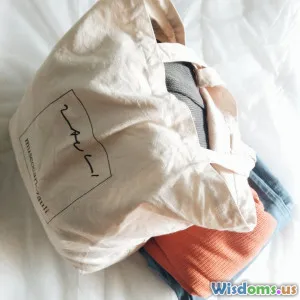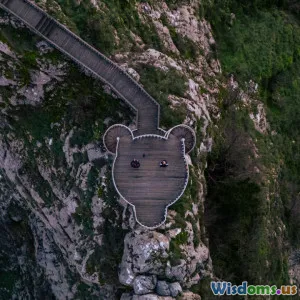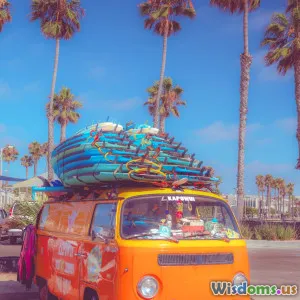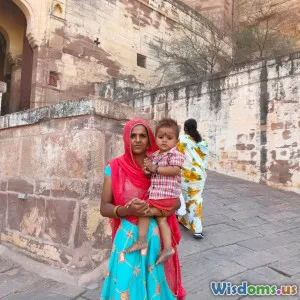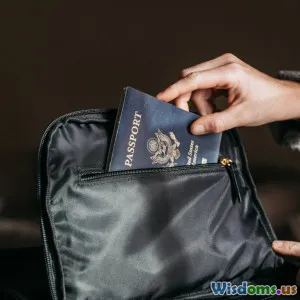
The Joy of Minimalist Travel: Less is More
8 min read Discover freedom and fulfillment through minimalist travel—embrace less baggage and more adventure with smart packing and mindful experiences. (0 Reviews)
The Joy of Minimalist Travel: Less Is More
Traveling has long been synonymous with discovery, adventure, and escape. But amidst the excitement, too often travelers find themselves bogged down by bulky suitcases, endless to-do lists, and a rushed itinerary. Enter minimalist travel—a movement that champions the philosophy of "less is more." It's an approach not just to packing but to experiencing travel itself. This article uncovers how minimalism can transform your trips, offering freedom, ease, and deeper connections.
What Is Minimalist Travel?
Minimalist travel involves traveling light, prioritizing essentials, and simplifying experiences. The mantra is to trim physical luggage and mental clutter to focus on meaningful moments rather than possessions or over-scheduling.
A compelling example comes from travel writer Leo Babauta, who famously traverses the globe with only a carry-on backpack. His approach minimizes dependencies and maximizes flexibility. Minimalism is not about deprivation; rather, it’s about intentional choice—and embracing what truly matters.
The Benefits of Traveling Light
Freedom of Movement
Carrying just a backpack or small suitcase liberates you from the hassle of dragging heavy bags through airports, public transit, or rugged trails. Studies show that the average traveler carries 44 pounds of luggage—minimizing this reduces fatigue and speeds up transit.
Take, for example, frequent-flying entrepreneur Chris Guillebeau. He credits minimalist packing for enabling spontaneous itinerary changes and avoiding checked luggage fees, which can easily add up to $100 or more per flight.
Cost Savings
Airlines charge increasingly for checked luggage; bypassing those fees saves money directly. Additionally, minimalist travelers often avoid purchasing superfluous items at their destination, realizing greater overall savings.
Minimalism also aligns with budget travel principles by encouraging simple accommodations like hostels or Airbnbs, and local dining, optimizing your budgeting.
Environmentally Friendly
Less baggage equates to less fuel consumption during flights and less waste generated by single-use or unnecessary items. This aligns with the growing trend of sustainable travel, appealing to eco-conscious adventurers.
Enhances Experience
Without the distraction of material possessions, travelers often gain deeper cultural immersion and mindfulness. Kevin, a minimalist traveler we interviewed, emphasizes, "When I'm not focused on what I packed or lost, I engage more with locals and appreciate the present."
How to Travel Minimalist: Practical Tips
1. Master the Art of Packing
The core discipline is to pack strategically. Adopt capsule wardrobes with versatile, lightweight garments suited for multiple occasions. Brands like Uniqlo and Patagonia offer functional travel attire.
For example, layering allows adapting to changing climates, eliminating the need for extra bulky clothes.
2. Prioritize Multipurpose Gear
Choose travel items that serve several functions: a scarf that doubles as a blanket or a universal adapter that fits many plugs. This reduces the total number of items.
3. Follow the One-Week Wardrobe Rule
If you have at most seven days on your trip, pack clothes that can be mixed and matched within this timeframe, washing as needed. This prevents overpacking.
4. Digitize Your Documents and Entertainment
Keep digital copies of passports, reservations, and tickets. Use ebooks or streaming apps instead of physical books or DVDs.
5. Mind the Essentials and Skip “Just in Case” Items
Resist packing for hypothetical scenarios. Instead, prioritize items based on necessity and feasibility of accessing things abroad.
6. Use Packing Cubes and Compression Bags
These tools optimize space and organization inside your luggage, empowering you to fit more essential items comfortably.
Experiencing Life More Deeply on the Road
Minimalist travel shifts focus from possessions to experiences. With fewer material distractions, travelers can engage more authentically.
Take the case of Anna, who swapped traditional touristy sightseeing with minimal luggage backpacking through Southeast Asia. Freed from excess baggage, she joined local cooking classes, volunteered in communities, and cultivated rewarding connections.
Psychologists support this perspective; research from the University of Cambridge links mindful travel to enhanced well-being and satisfaction. Traveling minimally facilitates mindfulness, heightening sensory awareness and emotional richness.
Overcoming Common Challenges
While minimalist travel offers many perks, it isn't without obstacles:
- Fear of Missing Out (FOMO) on Stuff: Many hesitate to leave their "just in case" items behind. Solution? Start small and evaluate what you truly use.
- Adapting to Unfamiliar Laundry Situations: Plan and locate laundry services beforehand. Travel with compact detergent sheets.
- Packing for Varied Climates: Layering and researching climate trends can mitigate woes.
Continuous tweaking and experience aid mastering minimalist travel.
Conclusion: Embrace Less for More
The joy of minimalist travel lies in its paradox: carrying less leads to gaining more. More freedom. More savings. More meaningful experiences. In a world saturated with options and consumption, minimalist travel pushes a radical, freeing approach to explore the world intentionally and fully.
Whether embarking on a weekend city break or a months-long backpacking trip, adopting minimalist principles can redefine your adventures. As travel pioneer Hans Zimmer puts it, "Pack light, travel far, and let the journey transform you."
Ready to pack your bag with less but journey with more?
References
- Babauta, Leo. "Travel with Less: The Zen of Pack Light." Zen Habits, 2018.
- Guillebeau, Chris. "The Art of Non-Conformity." 2010.
- University of Cambridge Study on Mindfulness and Travel Satisfaction, 2019.
- Interviews with Kevin and Anna, experienced minimalist travelers, 2023.
- Airline baggage fees data, U.S. Department of Transportation, 2022.
Start small, embrace simplicity, and discover the liberating joy of minimalist travel.
Rate the Post
User Reviews
Popular Posts












